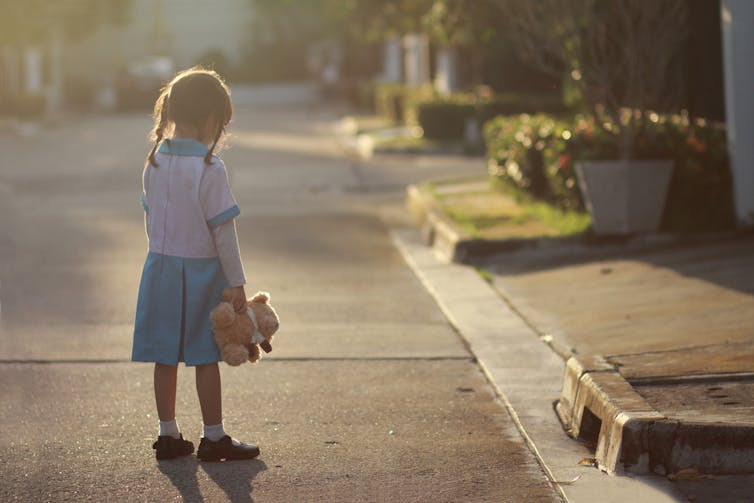 |
| Members of Urban Coup (Image: Thomson Reuters Foundation/Handout/Urban Coup) |
by Michael Taylor, This Is Place: http://www.thisisplace.org/i/?id=c27114d0-1598-4a0c-94be-be56fba3dbd3KUALA LUMPUR - In an ideal world, Alex Fearnside would cycle home from work, park his bike in the basement of his apartment complex in Melbourne city centre, then jog upstairs through a beautiful courtyard to his flat, stopping only for a quick chat with other residents in the shared dining area.Later, Fearnside and his wife would head down to the communal kitchen to eat a meal cooked by their neighbours.Fearnside's ten-year-old dream for life in the Australian city is nearing reality as it awaits planning approval. It is shared by 50 other Melbourne residents who belong to Urban Coup, a collective that wants to turn a disused button factory in an old industrial area into a co-housing community by 2020.
"What is driving us is we want to know our neighbours," said the 38-year-old environmental scientist. "We want to know that as we're growing old, we have people around us who have similar values to who we are and what we bring."
Urban Coup is one of five innovative housing initiatives that put community at their heart.
The projects are supported with expertise and networks mobilised by Resilient Melbourne, part of 100 Resilient Cities, a network backed by The Rockefeller Foundation to help cities deal with modern-day pressures.
This year, more than half of Asia-Pacific's population will be urban, and that figure will increase to two-thirds by 2050, the United Nations estimates.
But as the region's cities continue to expand, services and infrastructure are struggling to keep pace with rising populations and economic growth, while the effects of climate change have created additional challenges.
The Melbourne projects aim to help find solutions to the city's expanding urban sprawl, worsening traffic congestion and growing social isolation - all of which can contribute to problems like alcoholism and domestic violence.
And by building stronger community bonds, Melbourne should be better placed to recover from potential shocks and stresses, such as rising temperatures and droughts, infrastructure failures and potential pandemics, the schemes' proponents say.
"Many of the people who started Urban Coup remember growing up on streets where they knew everybody on that street," said Fearnside. "We wanted a building that would enable us to know our neighbours and allow us to support each other."
URBAN SPRAWL
In the past decade, Melbourne has topped various polls as the world's most liveable city, attracting new residents to Australia's second-biggest city.
Just under 5 million people live there, and the population is expected to double over the next 30 years, putting increased strain on infrastructure and housing.
As more estates have been built on greenfield sites outside the centre, the rise in urban sprawl has brought problems.
Housing developments have outpaced infrastructure, leading to dormitory suburbs, whose residents commute daily but enjoy few services, amenities and transport links.
That causes traffic congestion and longer commute times, as well as a lack of interaction between neighbours, experts say.
"We live in a really beautiful part of Melbourne but we don't really know our neighbours," said Fearnside, who currently lives with his wife in a townhouse 5 km (3 miles) north of the central business district.
In Melbourne's central areas, high-rise blocks have become more common in recent years. But as in many other Australian cities, first-time buyers and families have struggled to afford steeper prices stoked by overseas property investors.
And much new construction has been driven by developers, which tend to put profit before the provision of leisure or communal facilities.
On average, Melbourne property prices have doubled over the last decade, said Clinton Baxter, state director at Savills property agency in the city, and this trend is set to continue.
Central government efforts to help first-time buyers include a grant for deposits and stamp duty concessions, while state governments have sought to open up more land and fast-track approval processes for developments.
Despite this, the supply of new and affordable housing in Melbourne has struggled to keep up with demand. It is not uncommon to see would-be buyers camping out overnight ahead of a land sale to be front of the queue for their own building plot.
"The state government has struggled to keep up with the infrastructure requirements for such a rapidly growing city," Baxter said.
LIVING EXPERIMENT
The five projects supported by Resilient Melbourne will bring together developers, city and state government agencies, service providers and potential buyers and renters.
Each project is crafted around different community-focused models - some based on renewal of the inner-city and others starting from scratch on greenfield sites.
The projects will also be part of an academic study.
"We want this to be a genuine living experiment so that we can understand in deep ways what works and what doesn't work - and record it so the successes can be replicated in Melbourne but also internationally," said Toby Kent, the city's chief resilience officer.
The projects backed by Resilient Melbourne include a greenfield site for about 5,000 homes led by developer Mirvac.
It is working with local authorities to incorporate community aspects from an early stage.
Besides at least one new school, there will be a town centre with shops and a supermarket, and a hub to house programmes and events run by the council or residents, with a community-managed cafe and playground, said Anne Jolic, a director at Mirvac.
"Often people who move to some of these ... new housing (developments) will feel very isolated," she said.
Melbourne developer Assemble, meanwhile, plans to turn an old CD and DVD factory near the city centre into 73 flats.
The property will include communal spaces like a cafe, a co-working space, crèche and grocery store, and is consulting with potential residents and existing neighbours on the design.
When the final plans are drawn up, residents will pay a refundable 1 percent deposit to secure a place, said Kris Daff, managing director of Assemble.
Once built, they will move in and start a five-year lease with an option to buy at a pre-agreed price, or exit the lease and leave at any time.
Services and events on offer will include dry cleaning, apartment cleaning, dog walking, community dinners, walking groups and film nights in a communal room.
"There is a huge amount of research that shows that when acute shocks have struck in cities, communities where there are existing connections are better able to bounce back," said Kent, Melbourne's resilience chief.






